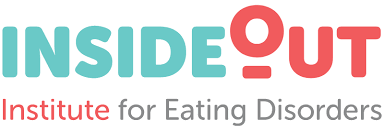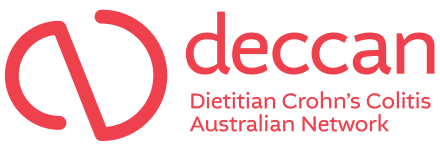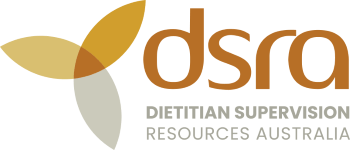ABOUT EMMA KEENAN DIETITIAN
MEET EMMA KEENAN: DIETITIAN & NUTRITIONIST
BAppSc, MDietPrac, APD
Owner
Hello there! I’m Emma, and I go by she/her pronouns. I’m an Accredited Practising Dietitian and a member of Dietitians Australia, and I’m committed to helping individuals enhance their health while steering clear of nutrition myths and misconceptions. In my approach, you won’t find restrictive diets, calorie counting, trendy food trends, or rigid food rules, as these concepts are deeply rooted in diet culture and at odds with scientific evidence. Instead, I recognise the importance of food in promoting our health and its role in enriching meaningful moments in our lives.
My philosophy promotes natural and intuitive eating, reconnecting you with your body and allowing you to savour all foods without guilt. My areas of expertise include gastrointestinal nutrition, gut health, mental health, disordered eating, and eating disorders. I’ve pursued additional training in these areas and am continuously updated with the latest scientific research. My ultimate goal is to empower clients to enjoy a diverse and delectable diet that nurtures their physical health, mental health, and social connections.
When I’m not practising as a dietitian, you’ll find me exploring the local markets, experimenting in the kitchen, indulging in art, immersing myself in museums, relishing dining experiences with friends, strolling along the beach, dog sitting, paddleboarding, practising pilates, or yoga, embarking on journeys or adventures in my van. I love visiting markets and grocery stores when I travel - it’s an excellent way to immerse myself in different cultures and explore the intriguing and delightful foods people worldwide cherish.
Living in Melbourne offers the incredible advantage of having diverse food experiences at our doorstep. We’re fortunate to reside in this vibrant city, where people from around the globe share their culinary traditions and delights with us.
-
Food, nutrition, eating and health encompass so much more than calories, macronutrients, dieting, restrictions, structured meal plans, or supplements.
They are deeply influenced by our upbringing, culture, income, access to food, societal norms, personal experiences, behaviours, emotions, celebrations, nutrition knowledge, practical skills, and the relationship we have with both food and our body’s.
The following definitions offer a simple way to understand what health means and the different stages we may move through along on our individual health journeys:
Health
a relative state in which one is able to function well physically, mentally, socially, and spiritually in order to express the full range of one's unique potentialities within the environment in which one is living
Awareness:
the ability or quality to perceive, feel, or be conscious of something
knowledge and understanding that something is happening or exists
Acknowledge:
to accept, admit or recognise something,
the truth or existence of something
Knowledge
facts, information, and skills acquired through experience or education
awareness or familiarity gained by experience of a fact or situation
Change (or not)
an act or process through which something becomes different
replace something with something else, especially something of the same kind that is newer or better
Acceptance:
the quality or state of being accepted or acceptable
general agreement that something is satisfactory or right, or that someone should be included in a group
I work from a Weight-Inclusive, Health At Every Size® (HAES®), and Non-Diet approach.
The Health At Every Size® principles:
Weight Inclusivity: Accept and respect the inherent diversity of body shapes and sizes and reject the idealising or pathologising of specific weights.
Health Enhancement: Support health policies that improve and equalise access to information and services, and personal practices that improve human well-being, including attention to individual physical, economic, social, spiritual, emotional, and other needs.
Respectful Care: Acknowledge our biases, and work to end weight discrimination, weight stigma, and weight bias. Provide information and services from an understanding that socio-economic status, race, gender, sexual orientation, age, and other identities impact weight stigma, and support environments that address these inequities.
Eating for Well-being: Promote flexible, individualized eating based on hunger, satiety, nutritional needs, and pleasure, rather than any externally regulated eating plan focused on weight control.
Life-Enhancing Movement: Support physical activities that allow people of all sizes, abilities, and interests to engage in enjoyable movement, to the degree that they choose.
-
Master of Dietetic Practice, La Trobe University
Bachelor of Applied Science, La Trobe University
-
Gut Smart: Nutrition and IBD for Dietitians
‘Quality, Safety and You’, NDIS Quality and Safety Commission
Supporting Safe and Effective Meals, NDIS Quality and Safety Commission
Supporting Effective Communication, NDIS Quality and Saftey Commission
Introduction to Disability and Inclusion for Dietitians, Dietitians Australia Centre for Advanced Learning
Monash University 'Low FODMAP Diet for IBS' online training course for health professionals
Gastrointestinal Nutrition for Dietitians, Dietitians Australia Centre for Advanced Learning
InsideOut: The Essentials: Training Clinicians in Eating Disorders
InsideOut: Dietitian Essentials: Treatment of Eating Disorders
Modulife CDED Expert Training
-
Dietitians Australia, Accredited Practising Dietitian APD190848
Dietitians Crohn’s and Colitis Australian Network (DECCAN)
Crohn’s and Colitis Australia
St John’s Ambulance First Aid and CPR Training
Dietitians Australian Interest Group Member: Mental Health, Diabetes, Gastroenterology, and Eating Disorders
Dietitian Supervision Resources Australia (DSRA): Engaging in regular supervision
Australia and New Zealand Academy for Eating Disorders
ACCREDITED PRACTISING DIETITIAN FAQs
-
Their specialised knowledge and evidence-based approach can provide the best possible guidance.
There are specific situations where seeking expert nutrition guidance is crucial. If you're dealing with a medical condition, a nutritional deficiency, or struggling to navigate conflicting nutrition advice, a dietitian can provide the support and guidance you need.
Medical Nutrition Therapy: If you have a medical condition like diabetes, Crohn's disease, ulcerative colitis, irritable bowel syndrome (IBS), coeliac disease, diverticular disease, high cholesterol, or high blood pressure, and need support and advice about foods for these conditions.
Vitamin or Mineral Deficiency: If you've been diagnosed with a nutritional deficiency or are worried you're not getting enough nutrition from your diet.
Deciphering Diet Information: Understanding and navigating nutrition information can be empowering, especially when you're overwhelmed by conflicting advice and seeking evidence-based guidance.
Life-Stage Transitions: If you're going through life-stage changes like pregnancy, breastfeeding, or perimenopause and want nutrition support for your unique needs.
Weight Neutral: A weight-neutral approach can provide the support and understanding you need if you're stuck in the diet cycle and seeking a health-focused solution. Emma is an Accredited Practicing Dietitian; you can read more about the health conditions she works with here.
-
An Accredited Practising Dietitian, or APD, is a healthcare professional who has completed university-level education and specialises in medical nutrition therapy.
Dietitians possess expertise in food and nutrition, particularly when it comes to managing medically diagnosed health conditions.
It's important to note that Accredited Practising Dietitians are the sole Allied Health Professionals acknowledged by Medicare to provide medical nutrition therapy.
-
The Dietitians Association of Australia is a professional organisation representing dietitians in Australia.
Their responsibilities encompass overseeing and administering the accreditation process for dietetics within the country.
They establish the Code of Conduct that outlines the standards for the ethical and professional conduct expected of Accredited Practising Dietitians (APDs).
Furthermore, they delineate the scope of practice for APDs and provide avenues for addressing complaints and collecting feedback.
-
As with any recognised health profession, the dietetic profession is firmly rooted in evidence-based practices and informed by science.
To become a dietitian in Australia, you must undergo an extensive and rigorous training process, which includes a science-based undergraduate degree and a Master of Dietetic Practice.
Core subjects may include:
Chemistry
Biochemistry
Anatomy
Physiology
Pathophysiology
Research and statistics
Chemistry of food and cooking
Community and Public Health Nutrition
Nutrition Counselling Skills
Dietitians are clinically trained to provide Medical Nutrition Therapy for:
Coeliac disease
Gastroenterology
Wound healing
Cardiovascular
Diabetes
Malnutrition
Aged care
Oncology
IBS
Cystic fibrosis
Traumatic brain and spinal injuries
Burns
Infectious diseases
Allergies
Kidney transplants
Paediatrics
Eating disorders
APDs must undertake at least 30 hours of Continuing Professional Development (CPD) per year, ensuring their knowledge and skills are always up to date.
After becoming qualified, many dietitians choose to specialise in a diverse range of areas, reflecting their unique interests and passions. This diversity is a testament to the breadth of the profession.









